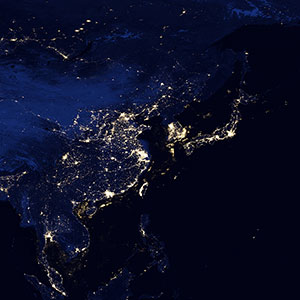Adapting to a New Energy Era - December 2013 Workshop
On Wednesday, December 11, 2013, the National Bureau of Asian Research (NBR) hosted an invitation-only workshop, Adapting to a New Energy Era, in Washington, D.C.
World energy markets have undergone a seismic shift in the past ten years, driven by the unexpected boom in U.S. and Canadian production of shale gas, tight oil, and heavy oil. These changes have accelerated an already steady decline in U.S. imports of Middle East oil and gas. At the same time, China, Japan, and the rest of Asia have emerged as major importers of oil and natural gas from the Persian Gulf.
Given these broad changes in both energy markets and global strategic priorities, and as the United States continues its rebalancing to Asia, there is an urgent need for the United States and Asian countries to revamp their energy security strategies for stabilizing the Gulf region.
With this in mind, panel discussions examined:
- Current U.S. and Asian energy security strategies for oil and LNG supply security, and how the policy and economic considerations that underlie these strategies are changing
-
Prospects for the United States to reduce its geopolitical footprint in the Middle East and scenarios for how Japan, South Korea, China, and other states might respond
-
Existing global and regional energy markets and institutions, and possible new or enhanced arrangements that might strengthen Asia’s energy security
-
How the United States and Japan can work more closely with states in the Asia-Pacific toward a coordinated strategic policy to enhance Gulf stability and the security of oil and LNG transport
-
Likely resource and commitment requirements for the United States, Japan, and other states in Asia to achieve common goals
Agenda and Speaker Bios
Speakers
Ambassador Ahn Ho-Young, Ambassador of the Republic of Korea to the United States of America
Minister Yasushi Akahoshi, Embassy of Japan in the United States of America
Congressman Charles W. Boustany, Jr., House of Representatives, United States
Kent Calder, Paul H. Nitze School of Advanced International Studies, Johns Hopkins University
Robert F. Cekuta, U.S. Department of State
Edward Chow, Center for Strategic and International Studies
Bernard Cole, National Defense University
Tom Cutler, Cutler International
Abraham M. Denmark, The National Bureau of Asian Research
Clara Gillispie, The National Bureau of Asian Research
David Gordon, Eurasia Group
Mikkal E. Herberg, The National Bureau of Asian Research
Roy Kamphausen, The National Bureau of Asian Research
Ambassador Ahmad Tariq A. Karim, Bangladesh High Commissioner to India
Geoffrey Kemp, Center for the National Interest
Takashi Kume , Ministry of Economy, Trade and Industry (METI), Japan
Ambassador Richard LeBaron, Atlantic Council
Meredith Miller, The National Bureau of Asian Research
Yu Nagatom, Institute of Energy Economics, Japan
Robert Price , International Risk Strategies
Kei Shimogori , Institute of Energy Economics, Japan
James Slutz, Global Energy Strategies LLC
Nikos Tsafos, PFC Energy – an IHS company
Wang Zhen, China University of Petroleum at Beijing
Sponsor

This initiative is made possible by the generous sponsorship of the Sasakawa Peace Foundation.




